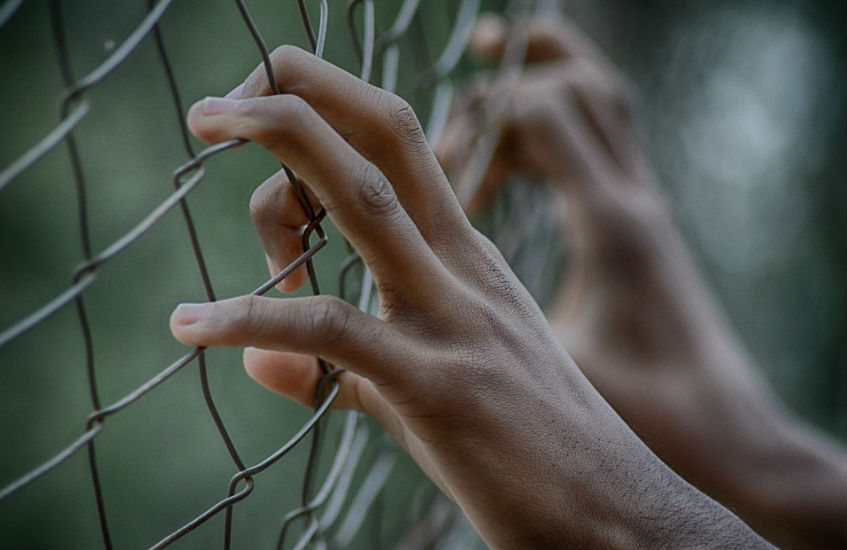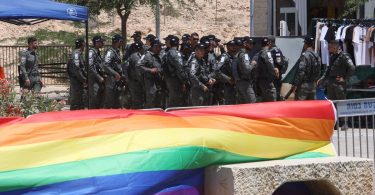What is it like to be gay, young and in prison?
There are only two under-21s that feel safe to come out as gay in the entire UK prison system.
The Chief Inspector of Prison’s annual report lists the paltry number of out gay inmates. It says the environment for LGBTI prisoners is ‘hostile’. Staff often misgender and dead-name trans inmates.
Inspectors, from all over the country, have reported prisons are not providing the additional support according to the UK government’s policies.
Gay ex-prisoner: Prison life for young LGBTIs is ‘terrifying’
Alex, not his real name, spent six months in a British Young Offenders Institution (YOI) as a 16-year-old in 2014. Unlike many former prisoners, he never reoffended.
‘Imagine the worst kinds of homophobic bullies you had at school,’ he told Gay Star News. ‘And now imagine they were all together, locked up, bored, and looking to pick on someone weak.’
Alex never came out in prison. He says he got through the ‘cut-throat’ experience by staying ‘quiet’.
‘When someone looks at you in a YOI, they don’t want to make friends,’ Alex said. ‘They probably want to kill you.’
He continued: ‘I bet there are lot more than just two gay kids in the UK prison system. I feel for them. It’s terrifying.’
What is life like for the only openly gay boys in the UK prison system?
Both of the only openly gay boys live in the specialist children’s prison, the Keppel Unit.
Keppel is home to 48 boys, aged 15-17. The prisoners are capable of extreme violence – against themselves and others. Reporters, who have been to the unit, have called Keppel home to the ‘most disturbed children living in England’.
Unlike other YOIs, every child is given an individual plan reviewed every two weeks. Boys receive therapy and education.
The reoffending rate for children leaving prisons is 70%.
Inspectors said the ‘lack of provision [for LGBTI young prisoners] needs to be addressed nationally’.
Staff misgender and dead-name trans prisoners
The report suggests fewer gay and bi inmates are choosing to come out in adult prisons. ‘They often receive little support’, inspectors said.
The report continues: ‘Transgender prisoners were held in many prisons we inspected this year.
‘Most said they felt reasonably well cared for, although we found some staff not using prisoners’ chosen pronoun or name.’
Despite what the Ministry of Justice claims, the inspectors said there was ‘no additional support’.
‘[There was] no links with community groups to provide advice and support [to LGBTI prisoners],’ the report added.
‘There was no evidence that induction staff or peer mentors offered assurance to new prisoners that they were safe to express their sexuality openly if they wished to do so.’
UK government recruiting to help support young people in custody
A Ministry of Justice spokesperson told Gay Star News they want everyone to feel safe in custody.
‘We have a zero-tolerance approach to any discrimination and bullying,’ they said.
‘It is up to young people to choose whether to disclose their sexuality or not – but either way we make sure they have access to extensive support.
‘We are recruiting more than 100 new frontline staff across public sector YOIs to help and support young people in custody.’
Will LGBTI criminals be offered an alternative to prison?
Last month, Justice Secretary David Gaulke has said the UK is holding ‘too many people’ in jail.
Short prison sentences of less than 12 months do not rehabilitate prisoners and should be a last resort, he said.
‘There is an issue about public protection, but I think we need to look at the efficacy of short sentences,’ Gualke told The Times.
He suggested to look at some groups and whether there should be alternatives to imprisonment. He did not specifically discuss gay, bi or trans offenders.
Female offenders, who are often victims of domestic abuse, have particularly complex needs. Prison could also be ‘absolutely the worst place’ for people with mental health problems.







